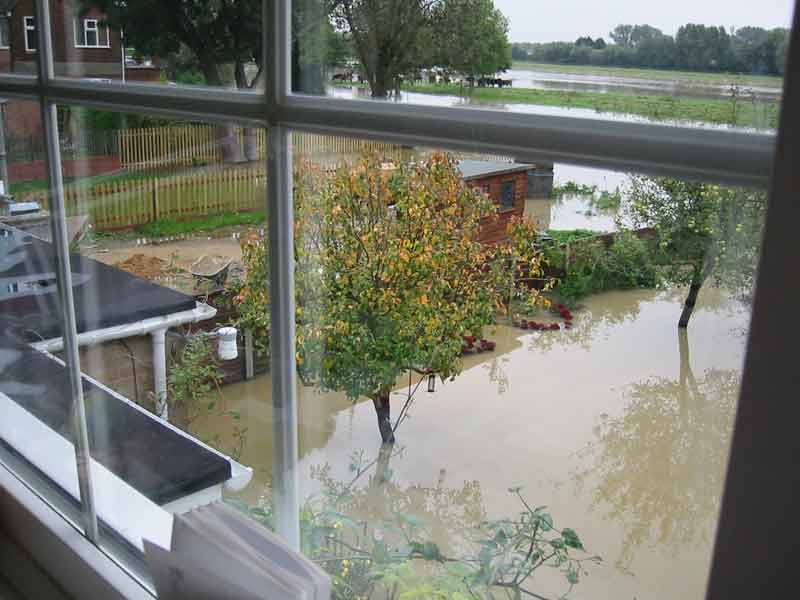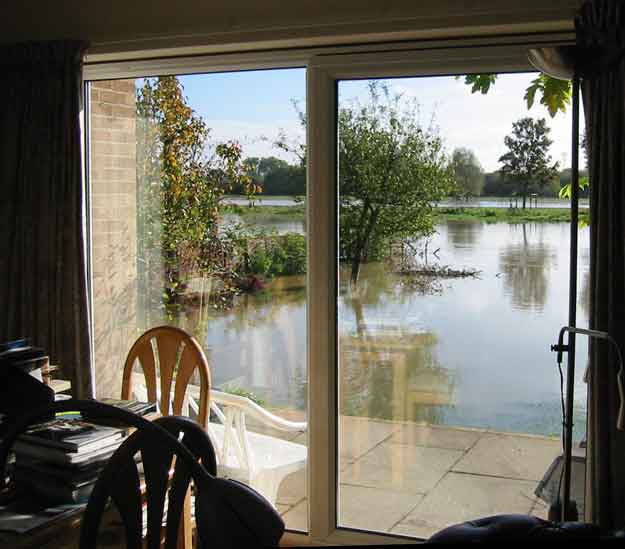Over the past couple of weeks we’ve been socialising with some lovely people from far away, first at FOSDEM and then at home afterwards. It’s been great but (for me anyway) slightly two-edged because it all contributes to what George Monbiot calls “love miles“, and I had accumulated too many of those already. A melancholy thought.
Category: Uncategorized
This field starts empty
[This was my first posting to Marginalia. There is older material on my website, but that started life elsewhere.]
Introducing some friends to one another a few days ago I realised they all had blogs. I think I want to play too. Maybe. Odd thing for an introvert to be doing but we’ll see how it goes.
The title has taken nearly a day’s pondering. I wanted it to be a watery kind of thing because I’m sitting here beside a river, and all these ideas and experiences come whooshing by like flood-water. I was thinking this might be a place where I can catch hold of a few as they sweep past and arrange them a bit. I like the idea of water margins because I write a lot in margins. Eventually I found this, which seemed to do it:
… where a neat rivulet of text shall meander through a meadow of margin.
(It’s Sheridan, which is also nice because he was the MP for Stafford.)
This isn’t my first attempt at blogging, in fact, but it’s my first under my own name — which of course makes it much harder because I do mind what people think.
Well… we’ll see how it goes.
Why electoral reform
I’m in favour of representative democracy. I don’t have to justify that bit, do I? The bit I have to explain is why I believe it’s necessary to change the electoral system.
The system we have
The system we have in Britain is called First Past the Post. However many candidates are standing for a constituency, each voter only has a single vote and must choose only one candidate to vote for. The candidate receiving the most votes wins. This system sounds superficially fair, and it’s not bad if there are only two candidates, but it is deeply flawed in the more usual case where there are three or more.
First problem: tactical voting
First Past the Post causes tactical voting. This happens when there is a candidate who is OK but not great, another whom you definitely don’t like, and a third one whom you really prefer, but you think has little chance of winning. (Your assessment of the probabilities probably comes from opinion polls and/or data from past elections). You will have to decide whether to vote for the just-OK candidate or whether to ‘waste’ your vote on the no-hoper. Having to make this kind of tactical decision really annoys most voters. It encourages cynicism. It means that your vote is not a clear positive statement of what you believe in. Great things have been achieved occasionally by organised tactical voting (see Billy Bragg’s report on the ‘Vote Dorset’ campaign in 2001 for example; the election of Martin Bell to parliament in 1997 was another example) but this takes a huge amount of effort that wouldn’t be necessary at all if the electoral system handled your preferences for you in a sensible way – as it easily could if we adopted a preference-based voting system such as STV.
Second problem: safe seats
First Past the Post gives rise to safe seats. This happens because the population isn’t evenly spread among the constituencies. Many areas contain so many people who have a general tendency to favour one particular party that everybody knows that that party will always win that seat. This is bad for several reasons:
- The party that always wins has no incentive to put forward a candidate who might attract popular support. The safe seat can be ‘given’ to someone the party leadership wants to get elected, regardless of likely local popularity. Local people won’t be happy and some may even abstain in protest, but enough of them will still vote according to their basic party loyalty.
- The parties that always lose in a particular area have no incentive to take the problems of this area seriously. If they happen to be popular elsewhere in the country they may end up in government, so the decisions they make will affect this area – but since they have nothing to lose, they don’t even have to consider public opinion locally. This is obviously the opposite of democracy. For an example, look at what the Tories did in Scotland during the Thatcher years.
- The party that always wins has no incentive to take the local problems seriously either! They too have nothing to lose because they won’t lose whatever they do. So, in fact, the people who live in safe seats will be neglected whoever is in government.
- The individual voters are effectively disenfranchised – their votes make no difference so they might as well stay at home, and increasingly we are seeing them do so.
Third problem: lack of proportionality
An assembly elected by First Past the Post does not usually come out proportional with respect to the representation of parties. Political parties that suffer from this effect think that this is the most important problem. Most people don’t esteem political parties as highly as they do themselves, but still proportionality does matter. The current system delivers large parliamentary majorities based on a minority of the popular vote. The effect is an unstable ‘see-saw’ between the two major parties, with smaller parties having no real influence.
The incentive this gives parties to stay large at all costs is immense. A party that splits into factions is completely sunk. This gives rise to dishonesty in politics because parties have to pretend to be united when they aren’t. A proportional system doesn’t reward parties for staying large, so differences in opinion are more likely to result in splits. These splits don’t hurt because smaller parties can still band together in coalitions to form governments. And they empower the voters, because each of the smaller parties can say honestly what it believes in and how it differs from the others, and the voters can express through the electoral system exactly which nuance of opinion they prefer.
Solutions exist
Fortunately there are superior systems, so we don’t have to live with these problems. They are practical, they’re easy to use, and they work. For information about these better alternatives, consult the Electoral Reform Society. I joined the ERS following the 1987 General Election. In Cambridge the Tory had been in the lead with the second and third candidates neck-and-neck. I’d found it very difficult to decide how to vote, and this is what started me thinking about the whole issue.
What I do
I joined the Electoral Reform Society in 1987 and have been a member ever since. I’ve also been a member of the Labour Campaign for Electoral Reform since soon after I joined the Labour Party. I serve as Regional Representative for LCER. I also signed Charter 88 in response to its first ever newspaper advertisement.
After the 1997 General Election, all of us who wanted electoral reform were hopeful that it would happen soon. In anticipation of the need for a coordinated ‘yes’ campaign to swing into action once a referendum was called, a new umbrella organisation called Make Votes Count was set up. A group of us immediately stepped forward to form a local group in Cambridge, which was active for a couple of years. I served as Secretary to this local group.
It turned out that the first battle that had to be fought was within the Labour Party, and our local group’s main achievement was in training and supporting those of its members who were also Labour Party activists, so as to provide guest speakers to Labour policy forums in and around Cambridge. I myself, as a result of this, went through the training course that the ERS organised for Make Votes Count and became authorised to speak on behalf of the organisation at public meetings. We were successful in our objective in that all the meetings to which we sent speakers were persuaded to vote in favour of reform. It now appears, however, that the hoped-for referendum is not going to happen in the near future. Because of this, our local group is not currently active.
The main focus of my interest in reform has always been the electoral system, but I’m also in favour of reforming British political life in various other ways, for example by introducing a written constitution, increasing the amount of free speech and free information, and replacing the house of lords with an elected second chamber. In some ways my views on these issues look rather similar to those of a typical Liberal Democrat. People in the Lib Dem party have sometimes sought to convince me that I’m in the wrong party. But they don’t understand. I agree with them on some questions about how society should arrive at its collective decisions, but I differ on the more important question of what we need to decide and why.
Why the Labour Party
We’re all in this together. It’s not possible to create a satisfactory life for just yourself. John Donne said it best in 1624:
No man is an island, entire of itself; every man is a piece of the continent, a part of the main. If a clod be washed away by the sea, Europe is the less, as well as if a promontory were, as well as if a manor of thy friend’s or of thine own were. Any man’s death diminishes me, because I am involved in mankind; and therefore never send to know for whom the bell tolls; it tolls for thee.
So, for example, the introduction of the National Minimum Wage is unlikely ever to affect me personally and directly – I expect to be able to get work that pays more than that anyway – but nevertheless it improves the quality of my life because it improves the quality of the society in which I live. So I’m proud to have taken part in making it happen, by working to get a Labour government elected in 1997.
I do accept that the Labour Party has some faults. Joining a political party is always a compromise, but it’s the most effective way to change things. I support most of Labour’s policies, and I’m part of campaigning groups within the party to change some policies with which I disagree.
The 2001 flood
I do not know much about gods; but I think that the river
from Four Quartets by T.S. Eliot
Is a strong brown god – sullen, untamed and intractable,
Patient to some degree, at first recognised as a frontier;
Useful, untrustworthy, as a conveyor of commerce;
Then only a problem confronting the builder of bridges.
The problem once solved, the brown god is almost forgotten
By the dwellers in cities – ever, however, implacable.
Keeping his seasons, and rages, destroyer, reminder
Of what men choose to forget. Unhonoured, unpropitiated
By worshippers of the machine, but waiting, watching and waiting.





These are some photographs of our garden during the great Cambridge flood of 22nd-23rd October 2001. The water had already gone down somewhat by the time we took these pictures: we were too busy for the first few hours moving our possessions upstairs in case it came any higher.
This blog post is re-created from a web page that I made soon after the flood in 2001. I added the photo captions in 2021. I have back-dated the post to match the date the photos were taken.